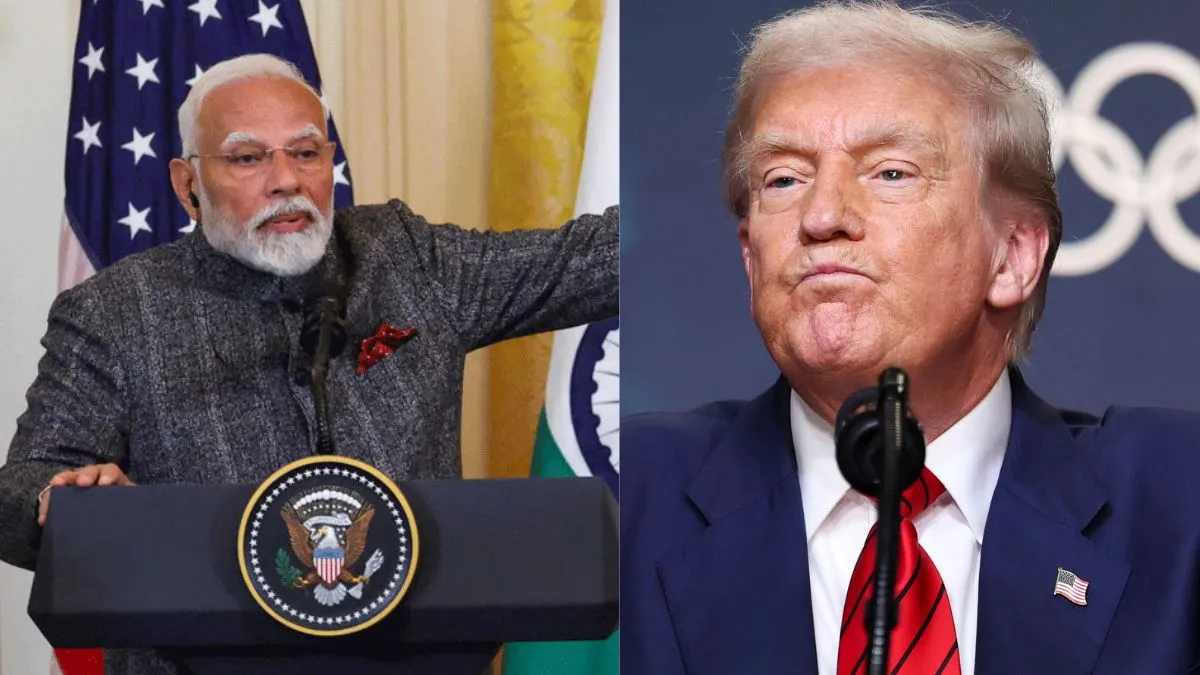- By Ajeet Kumar
- Fri, 29 Aug 2025 09:06 PM (IST)
- Source:JND
The steep 50 per cent tariffs imposed by the United States on Indian goods are largely a result of President Donald Trump's "personal pique" at not being allowed to mediate in the India-Pakistan conflict, according to a recent report by American multinational investment bank and financial services company Jefferies.
The report said the American president had reportedly hoped to intervene following the four-day military conflict between the two countries in May. It stated "tariffs are primarily the consequence of the American president's 'personal pique' that he was not allowed to play a role in seeking to end the long-running acrimony between India and Pakistan".
India has consistently maintained that it does not accept third-party intervention in its conflicts with Pakistan.
India's rejection poised threat to Trump's Nobel Prize dreams
Jefferies pointed out that this "red line" was upheld despite the heavy economic costs, effectively denying the 47th American president one of his opportunities to strengthen his international standing and potentially seek recognition such as the Nobel Peace Prize.
Another sticking point is agriculture. The report highlighted that no Indian government, including the current one, is willing to open up the agriculture sector to imports because of the severe consequences it would have on millions of people.
ALSO READ: Indian Commerce Minister's Brutal Reply To US: 'Neither Bow Down, Nor Will We Ever Be Weak'
Nearly 250 million farmers and related labourers depend on agriculture for their livelihoods, with the sector accounting for nearly 40 per cent of India's workforce, the report noted.
Trump imposed draconian tariffs on India: Jefferies
According to Jefferies, the draconian tariffs now imposed on India are also tied to a wider chain of events. Trump has not been able to end the Ukraine conflict as he had promised, and India's continued purchases of Russian oil have become an added issue in Washington.
However, the report stressed that the underlying cause remains India's refusal to allow Trump's personal intervention in the Pakistan issue.
The Jefferies analysis further described the development as a "classic example" of a "conceptual vacuum" in Washington, warning that such decisions are not aligned with America's national interests. Pushing India away risks bringing it closer to China, the report cautioned, pointing to the resumption of direct flights between the two countries as early as September after more than five years.
(With inputs from agency)

